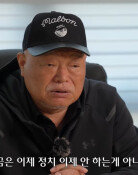Obama Gov`t Plans 1st Talks With N. Korea
Obama Gov`t Plans 1st Talks With N. Korea
Posted November. 12, 2009 06:09,
The Obama administration plans its first bilateral talks with North Korea, with U.S. special envoy for North Korea Stephen Bosworth to visit Pyongyang by the end of the year.
Ten months have passed since the White House decided to begin bilateral talks with Pyongyang, leading to criticism that Washington waited too long. Many experts say, however, that the Obama administration has moved far faster than its predecessor, which took 20 months to do the same.
President Barack Obama has something in common with his predecessor, George W. Bush in that both men put North Koreas nuclear program at the top of their agenda. Yet their respective approach to details is significantly different.
Bosworth will visit Pyongyang for two purposes. First, he will urge North Korea to return to the six-party talks. Second, he will emphasize denuclearization while urging Pyongyang to abide by the 2005 joint statement.
Before its first bilateral talks with Pyongyang, the Bush administration officially said its envoy would reach an agreement on improving bilateral relations. When James Kelly, U.S. assistant secretary of state for East Asia and Pacific affairs, was sent to North Korea as an envoy, however, he had the important duty of pressing Pyongyang to admit its plan for enriched uranium nuclear development.
What is drawing attention this time is the inter-Korean naval skirmish Monday. The Bush administration planned to have Kelly visit Pyongyang for bilateral talks in June 2002. After the second naval skirmish between the two Koreas, however, it withdrew its plan.
The Obama administration informed North Korea of its plan to send Bosworth to Pyongyang before the skirmish, and stuck to the decision despite the clash. It seems the U.S. can confirm its decision since the South Korean Navy suffered no big losses in the battle.
The Bush and Obama administrations also had different approaches in whether to officially announce a policy of engaging North Korea. After reviewing North Korean policies for around 18 months, the Bush administration announced a bold approach, but the Obama administration has yet to announce a policy in the wake of Pyongyangs long-range rocket launches and nuclear tests.
North Koreas provocations have forced the U.S. to support South Koreas grand bargain proposal of dealing with the nuclear issue instead of improving bilateral relations with Pyongyang.
The U.N. Security Council also adopted Resolution 1874 to impose sanctions on North Korea. China, North Koreas traditional ally, has also participated in the sanctions.
spear@donga.com







